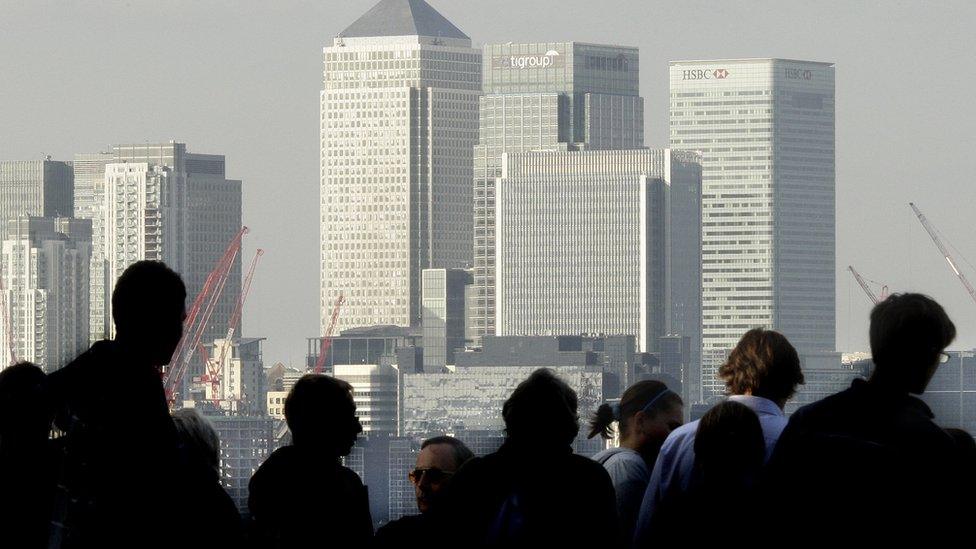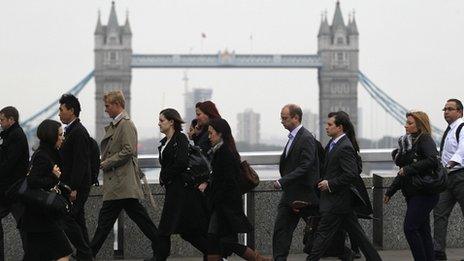Londoners work 'three weeks a year more than rest of UK'
- Published

Londoners spend about three weeks more at work a year than the rest of the UK, according to new data.
The Office for National Statistics (ONS) figures, external show the average working week in London is 33 hours, the longest since the 2008 financial crisis.
The average working week in the UK - which gets reduced by part-time work - is 31 hours, according to the figures.
The UK works shorter hours than the Organisation for Economic Co-operation and Development (OECD) average., external
The extra two hours a week worked by the average Londoner compared with the average for the UK means they clock up about 100 extra hours over the year, which equates to about three working weeks.
London's young demographic, external, high cost of living and concentration of "higher-skilled work" creates a culture of longer hours, according to Prof Ronald McQuaid.
'More jobs in London'
The professor of work and employment at the University of Stirling told the BBC: "Certain industries, such as financial services, typically work longer hours and there's a high concentration of these in London.
"Younger workers are more likely to work longer hours too, especially if living in an expensive area".
The differences between regions and nations of the UK can be partly explained by London having the most jobs, which the ONS said reflected its relatively large population and the fact a lot of workers commuted in from other regions.
Part-time jobs bring down the average number of hours.
The ONS said: "Regions with the highest average hours per job (London and Northern Ireland) also have the highest share of full-time workers. Additionally, the regions with the lowest average hours worked per job (the South West and Yorkshire and the Humber) also have the lowest share of full-time workers."
A 2012 study found Londoners also faced the longest commute in the UK, spending an average 75 minutes per day travelling.
This leaves commuters "needing to work more hours to make up the cost of travel," according to Prof McQuaid.
London has the UK's highest proportion of workers in full-time employment (79%),, external each working an average of 38 hours per week.
According to the Confederation of British Industry (CBI), external, Londoners also earn about £10 per hour more than the UK average. Prof McQuaid said this makes it "more worthwhile for Londoners to stay at work".

Working longer hours has been linked to deteriorating physical and mental health. , external
Long hours and stressful working conditions "have created a toxic burden on Londoners" argues Sian Berry, who represents the Green Party on the London Assembly.
"It impacts on the time you spend on taking care of yourself," she added.
However, UK working hours are "considerably shorter" than the USA, Turkey and New Zealand, according to OECD data.
Len Shackleton, Research Fellow at the Institute for Economic Affairs, argues "while it is often assumed the UK is prone to a long hours culture, that is not necessarily the case".
He added: "Individual choice plays an important role in determining working hours. Tolerance for long hours and desire for extra money varies across the population."
- Published23 May 2012

- Published13 November 2012

- Published21 February 2016
